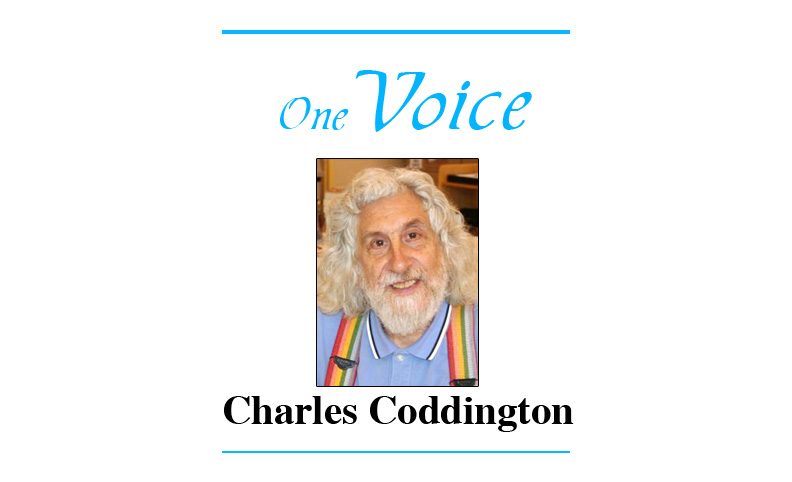
When last we saw PFC (private first class) Chas, he was boarding an ocean liner bound for the wonderments of Germany. A new and exciting adventure awaited him.
I confess that I have exaggerated a wee bit when I used the expression “ocean liner.” True, the ship sailed the ocean blue (or the ocean green if you include the garbage which had been dumped into it); and, true, it carried a lot of passengers – free of charge, no less! But, that’s as far as it went. What this ship was, was an old re-converted merchant marine convoy vessel wherein the cargo holds had been “re-modeled” into “dormitories,” i.e. row after row after row of triple-decker bunk beds. If this ship had a designation, such as USS Trump or USS Putin, I never knew and cared even less.
No “yo-ho-ho-and-a-bottle-of-rum” for The Chas, however. It was leftovers from hospital fare for four days and three nights. Did I mention that this vessel was so slow that the captain had to ask for volunteers to get out and push? No? Well, it was, and maybe somebody did volunteer. But I wasn’t about to volunteer. One thing I had learned in basic training: Never volunteer for anything!
Once, I thought I saw the conning tower of a U-boat, and I believed the end was near. Happily, it turned out to be a passing dolphin/porpoise (?) who gave us all a cheery hello. It may have been laughing, but I couldn’t be sure. I saw my first whale; he didn’t give a cheery hello, but ignored us all together.
Crossing the Atlantic Ocean proved to be rather boring, and I had to be content with counting the pieces of floating garbage. The real adventure, however, began when we entered the North Sea. Sailing the North Sea is definitely not for the weak-minded, or those with weak-stomachs. Yours truly spent the remainder of the cruise “riding the rails,” as it were. His appetite was not the only thing he lost.
Happily, the ocean cruise came to an end when the liner docked at Bremerhaven, Germany. Several trains awaited to take the passengers to their separate destinations. I was marched to the train bound for Nuremburg. Since night had fallen by this time, I had no opportunity to see the sights. The highlight of the trip was passing a group of young women who waved, shouted lewd suggestions, and laughed because we were in no position (you’ll excuse the pun) to accommodate them. When the train arrived at the Nuremburg depot, we were transferred to a number of “deuce-and-a-halfs,” i.e. two-and-a-half ton military cargo trucks, and taken to our individual posts.
My post was the Third Armored Medical Company, attached to the headquarters battalion of the famous Second Armored Cavalry Regiment. Attached were two battalions of artillery [which I thought was strange, but “Father (the Army) knows best,” don’t you know?], a transportation company and an ordnance company.
What is a medical company, you may be asking yourself, dear reader? Well, if you ever watched the TV series “MASH,” you’d know. For those who haven’t, a medical company consists of all those people in a mobile army surgical hospital (MASH) who aren’t doctors or nurses. Clerks, cooks and food-servers, ambulance drivers, orderlies, stretcher bearers, and all-around go-fers, those ant-like persons who do all of the heavy lifting, are the ones who keep the MASH functioning, more or less.
As I soon learned, a peace-time medical company was nothing but a bunch of go-fers, moving robotically through their paces from day to day. I learned that the Third was the laughing stock of the entire battalion because it was assigned the work that no one else wanted to do. As a consequence, the unit was affectionately nick-named the “Third Herd.”
The Herd’s chief cow – uh, commanding officer was a captain in the Medical Service Corps. MSCs were not doctors, but bureaucrats who administer medical units. As it happened, this MSC was neither a doctor nor an administrator; he was a cipher with delusions of grandeur, not unlike Donald Trump, except he aspired to be only a general rather than a king. He sucked up to the regimental CO (commanding officer) every chance he got and volunteered the Herd for every menial task you could think of. The executive officer, on the other hand, was as laid-back as they come; a second lieutenant, he was clearly out of his element and would have been more comfortable in a college campus environment.
The closest we ever came to doing “medical work” was when we attended refresher courses. Otherwise, we were just grunts, which I’ll explain in the next exciting chapter.
Just a thought.

